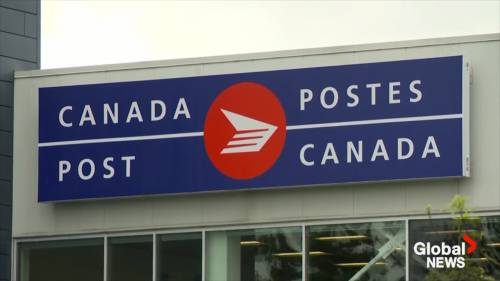A tentative agreement between Canada Post and its second-largest union has averted what could have been a significant disruption to mail service across rural Canada. The Crown corporation announced late yesterday that it had reached a deal with the Canadian Postmasters and Assistants Association (CPAA), which represents approximately 5,400 workers who operate post offices in rural communities.
After months of increasingly tense negotiations, the breakthrough came just days before a potential work stoppage that would have affected hundreds of small communities where post offices serve as essential service hubs.
“For many rural Canadians, these post offices aren’t just mail centers – they’re community lifelines,” said Michelle Bergen, CPAA National President, in a statement following the announcement. “Our members deserve working conditions that reflect their importance to these communities.”
The agreement, which still requires ratification by union members, addresses several key concerns that had become sticking points during negotiations. Sources close to the talks indicate improved wages, better job security provisions, and workplace safety enhancements are among the deal’s components.
Rural postal services have faced mounting pressures in recent years. According to Statistics Canada data, approximately 22% of Canadians live in rural areas where alternative service options are limited. A 2023 Parliamentary report on rural services noted that in over 1,200 communities, the local post office represents the only federal government presence.
Jan Simpson, president of the Canadian Union of Postal Workers (CUPW), which represents urban postal workers under a separate agreement, expressed solidarity with the CPAA. “This tentative agreement recognizes the unique challenges faced by rural postal workers who often operate with fewer resources while serving widespread communities,” Simpson told reporters.
The agreement follows a pattern of labour tensions at Canada Post. Last year, the corporation reported a $187 million loss before tax, citing declining letter mail volumes and increasing operational costs. The financial pressures have complicated labour negotiations, with the Crown corporation attempting to balance service commitments against fiscal realities.
Federal Labour Minister Seamus O’Regan praised both parties for reaching an agreement without service disruption. “Canadians rely on postal service, especially in rural and remote communities. This agreement ensures continuity while respecting the collective bargaining process,” O’Regan said in a media statement.
For communities like Millbrook, Nova Scotia, where the post office serves approximately 2,500 residents, the agreement provides welcome certainty. Local resident Eleanor MacPherson expressed relief at the news. “When you’re an hour from the city, the post office isn’t just nice to have – it’s essential,” she said during a community meeting I attended last week. “It’s how we get medications, important documents, and stay connected.”
The agreement comes amid broader questions about Canada Post’s future. A 2022 review by the federal government identified modernization challenges and recommended greater diversification of services, particularly in rural locations where post offices could potentially offer expanded government services.
Public Services Minister Jean-Yves Duclos indicated the government sees value in Canada Post’s rural network. “This tentative agreement preserves an important service delivery model while we continue exploring how these locations can better serve Canadians,” Duclos noted in a statement.
Rural advocates have long argued that postal services represent more than mail delivery – they’re economic anchors. The Rural Municipalities Association estimates that each rural post office supports approximately 3-7 additional jobs in surrounding communities through indirect economic activity.
While details of the agreement remain confidential pending ratification, Canada Post spokesperson Phil Legault confirmed the deal would be in effect for four years if approved. “This agreement provides stability for our operations while acknowledging the important role our rural postmasters and assistants play in serving Canadians,” Legault said.
The agreement doesn’t resolve all challenges facing Canada Post. The corporation continues to navigate changing mail patterns, with parcel volumes increasing 21% over the past three years while letter mail declined by nearly 17% in the same period according to their most recent annual report.
For residents like Frank Davidson in Cochrane, Alberta, the continuation of service matters more than the corporate challenges. “My small business ships products across Canada. Without our local post office, I’d be driving 45 minutes each way to the city,” Davidson explained when I spoke with him about rural postal services last month.
The CPAA membership will vote on the tentative agreement over the coming weeks, with results expected by early October. If ratified, the agreement would immediately replace the previous contract that expired in December 2023.
As Canada’s demographic landscape continues to evolve, with urban migration affecting rural communities, the role of institutions like local post offices becomes increasingly significant in maintaining rural viability. This agreement, while primarily about labour conditions, ultimately speaks to broader questions about service equity across Canada’s vast geography.
The tentative agreement demonstrates that even in an increasingly digital world, traditional service infrastructure remains vital to community well-being – particularly in areas where alternatives are few and distances are great.






